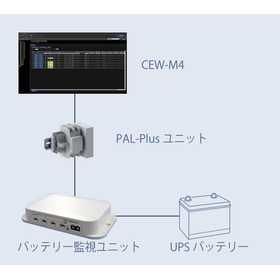What are the international rules for transporting energy storage devices? Here is an introduction to the background that has been established.
Today, as lithium-ion secondary batteries are used worldwide, ensuring the safety of products is essential, and it is also crucial to establish mechanisms for their safe transportation. In particular, energy storage devices such as lithium-ion batteries can pose risks of heat generation and ignition, and are classified as hazardous materials under international regulations. Therefore, caution is necessary when transporting them internationally, such as during import and export. In this blog, we will introduce the rules established for the international transportation of these items. For more details, please refer to the related links. [Content Included] ■ International rules for transporting lithium-ion batteries ■ International rules for transporting lithium-ion capacitors ■ Summary of transportation rules for energy storage devices *For more detailed information about the blog, you can view it through the related links. Please feel free to contact us for further inquiries.
Inquire About This Product
basic information
*You can view the detailed content of the blog through the related links. For more information, please feel free to contact us.*
Price range
Delivery Time
Applications/Examples of results
*You can view the detailed content of the blog through the related links. For more information, please feel free to contact us.*
Company information
Our company is engaged in the development, manufacturing, and sales of devices related to lithium-ion capacitors and energy storage devices. Our lithium-ion capacitors are advancing applications in areas such as rapid charging and discharging, energy regeneration, and peak assistance, which contribute to energy efficiency and effective utilization. Through the provision of energy solutions that meet the diverse needs of our customers, we aim to contribute to the realization of a sustainable society.




![[Blog] The History of the Birth of Lithium-Ion Batteries and Lithium-Ion Capacitors](https://image.mono.ipros.com/public/product/image/56c/2000715911/IPROS06652411531172349083.png?w=280&h=280)
![[Blog] Causes and Mechanisms of Lithium-Ion Battery Explosions](https://image.mono.ipros.com/public/product/image/65e/2000715917/IPROS41220805527144914602.png?w=280&h=280)


![[Information] Rechargeable Battery Lithium-ion Battery 18650 Year](https://image.mono.ipros.com/public/product/image/0d4/2000713797/IPROS28161297890975965044.png?w=280&h=280)




![Lithium Battery [Environmentally Friendly! Rechargeable and Not Disposable] BA](https://image.mono.ipros.com/public/product/image/3a9/2001222280/IPROS74517226618069341255.png?w=280&h=280)

